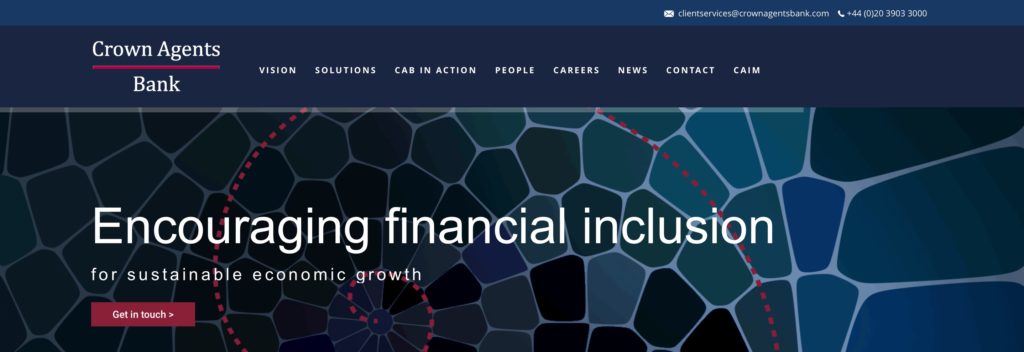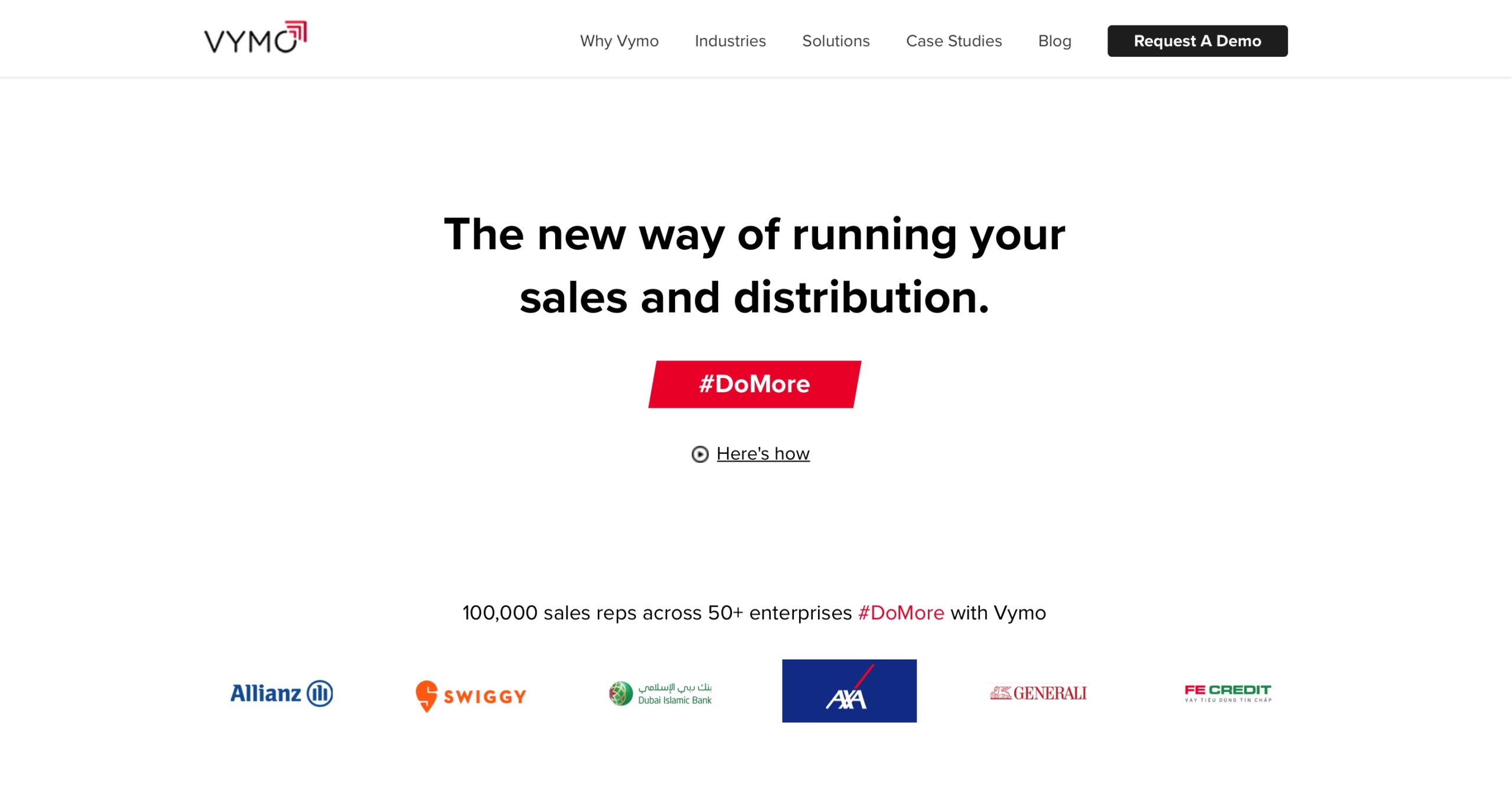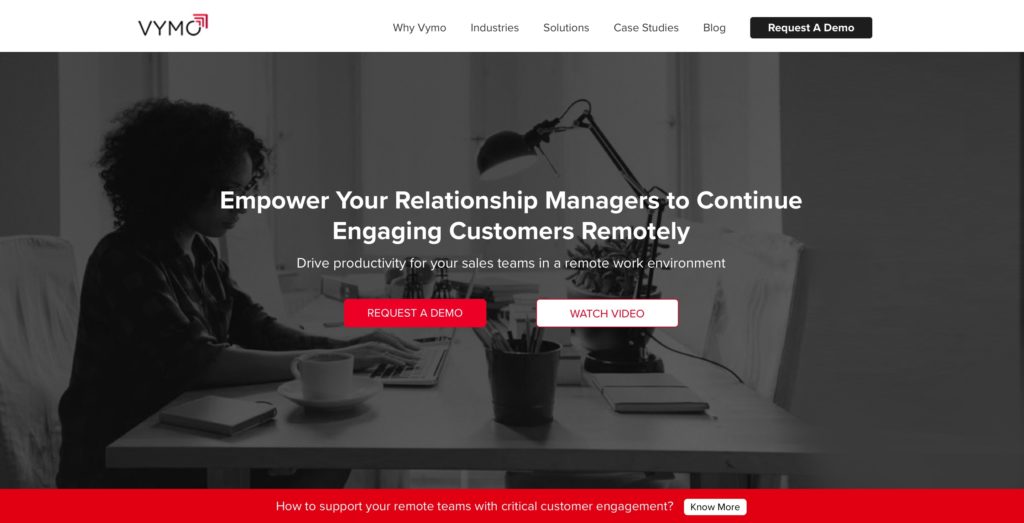
As the current COVID-19 pandemic reminds us, technology has a critical role in helping us respond to unforeseen events. Whether it is development of treatments and vaccines in the case of public health emergencies, or the ability to offer services and solutions to keep businesses running and workforces productive, technological innovation takes on an entirely different light at times of crisis.
One of the major themes of our FinovateEurope conference in February had to do with the ethical deployment of these financial technologies in areas like emerging markets and the frontier. These are regions where challenges from public health crisis to financial inequality can be all the more acute.

Mel Tsiaprazis, Group Chief Operating Officer at Crown Agents Bank, is one of the women who helped lead that conversation at our event in Berlin. A financial services specialist with international experience in markets such as Europe, Asia, and Oceania, Tsiaprazis believes that the combination of financial inclusion and financial education is key to ensuring financial wellness for future generations. Much of her support for diversity in financial services is revealed in the work she does as an angel investor and advisor for fintech startups.
We caught up with Ms. Tsiaprazis to discuss her work at Crown Agents Bank, the importance of ethics in fintech innovation, and the challenges of banking on the financial frontier.
Finovate: You are relatively new to the post of COO at the bank – What have been some of your early priorities?
Mel Tsiaprazis: It’s my nature to dive straight into a new challenge, so while it’s only been a year I feel like we’ve already made great progress. My priority when joining was to help drive the bank’s ambitious plans for digital transformation, so making sure we have the right infrastructure and passion to build on our technology focus has been really important. Joining at the same time as the Segovia acquisition was announced, then running with the integration, was really exciting. You can feel that becoming more technology-driven has helped keep us agile and pushing for more.
Finovate: Can you tell us a little about Crown Agents Bank and the markets it serves?
Tsiaprazis: In simple terms, Crown Agents Bank moves money to, from, and across developing, emerging, and frontier markets. We really pride ourselves on serving markets that most other players can’t. Many players don’t have the adaptability of a boutique bank like CAB or the unique relationships and expertise that we have built up over nearly two centuries, which is part of why it’s crucial we continue to serve these territories. For many countries, we provide vital access to the international market, by offering cross-border payments and FX solutions.
Our coverage spans the Caribbean, Central and South America, Asia Pacific, and our knowledge of Africa is particularly high. Within these regions, there are countries that are particularly vulnerable to natural disasters or political and economic volatility, so our services are often essential for enabling aid to reach the people who need it most.

Finovate: You participated in our FinovateEurope Power Panel on AI and Data Management in February. What were the key points you emphasized in that discussion?
Tsiaprazis: That was a really fantastic discussion! One of the key points I emphasized on the panel was how AI can help to solve societal challenges. A lot of governments worldwide are rushing to foster AI investment and develop formal AI frameworks to help spur economic and technological growth, and we need to pay close attention to the positive impact that this boom can have.
The other thing that I think is important in every AI discussion is to talk about how we can shift from fear to acceptance. What many people don’t realize is how ingrained AI already is in our daily lives – and how helpful it is – so as an industry we need to help people recognize the benefits of AI and build trust.
Finovate: You’ve spoken before about the challenges of developing or frontier markets when it comes to the lack of liquidity in local currency and the lack of financial services infrastructure. Are there ways that technology can respond to these concerns?
Tsiaprazis: Technology is an absolutely crucial part of the solution to these issues. Low liquidity and poor or absent financial infrastructure have been an issue in frontier markets for generations, but the strides we’ve made in technology over the last few years have and will be transformational.
For example, automation has already made a considerable difference in trading currencies in terms of reducing the time and cost of transactions. For markets where a large volume of cash inflow comes from remittance payments, minimizing the cost for the sender is really vital.
We’ve already seen how mobile wallets can transform access to financial services for a population. M-Pesa in Kenya is still a fantastic example of how technology leapfrogs a lack of infrastructure to reach consumers. Our payments gateway, powered by Segovia, enables International Development Organizations, for example, to reach individuals directly by allowing them to pay into mobile wallets.
Technology provides optionality in markets where financial infrastructure is considered to still be developing. We are proud to be able to offer FX to last mile delivery payment options from ACH to mobile transactions.
Finovate: One of the interesting things I’ve heard you discuss is the mutually-reinforcing relationship between financial inclusion and the need for better knowledge of local markets. Can you explain the importance of this mutually-reinforcing relationship?
Tsiaprazis: The lack of local knowledge of emerging and frontier markets can make it exceptionally difficult to serve those with limited infrastructure in the right way. A strong understanding of local financial processes and more complex environments are vital to providing financial services in hard-to-reach territories. It also helps to build trust and relationships with key organizations in that region.
Where the relationship becomes mutually reinforced is when financial inclusion increases and we get more data on people within the market. As we understand consumer behaviors and markets are better understood, more players are willing to serve them and we are able to reach more people with financial services. When the two complement each other well, we can make a real difference in improving access to these services.
Finovate: You champion gender diversity in the financial services industry through angel advice and investment in startups that support this cause. Who are some of these companies – especially in financial services? Why do you think it is an effective way to bring about the change you seek?
Tsiaprazis: Diversity is vital in all forms. It comes in numerous guises including but not limited to race, age, gender, and work experience. It is all important to the future profitability and health of an organization. Gender challenges more specifically though, within the world of startups are exacerbated. When looking for investments, I factor in BCG research which showed startups launched by women are significantly better financial investments. For every dollar of funding, startups launched by women generate 78 cents, while male-founded startups generate less than half of that at just 31 cents. Sadly, I am also very alert to the fact that only 3% of the total capital invested in 2018 in U.K. fintech companies went to firms with female founders. This challenge isn’t only in startups, we see this gender fragmentation in the top VC firms that invest in startups with only 7% of partners in the top 100 VC firms are women, according to research by Crunchbase.
While 72% of founders say that diversity in their startup is extremely or very important, only 12% of startups are diversity leaders in practice. With only 1 in 10 startups having diversity leaders, I place greater emphasis on this 10% portion not because of their background, but because startup track record shows these are sound investments. The question remains, how do we actively change the distribution of investment? How do we encourage a broader more diverse group of co-founders/startup colleagues? In my experience, the latter is answered by not only focusing on recruitment, but on retention strategies for diverse backgrounds (perhaps targeted at working/single parents, apprenticeship-like approach for high school leavers or non-degree colleagues). Encouraging a workforce reflective of your client base starts with recruitment but ends with retention.
There is no magic bullet to solve this challenge. My advice to those thinking of starting a startup is to remember you may be a superhero and a brilliant SME, but you can’t do it alone. Be wise on diversity recruitment, prioritize retention even more, and embrace lateral thinking that sets you apart.




























